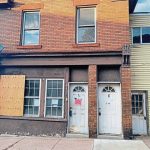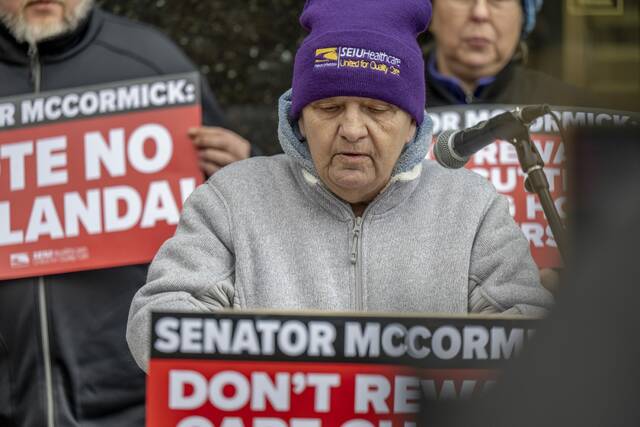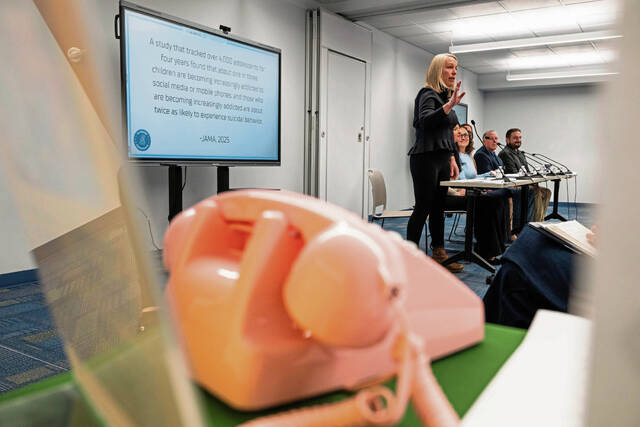There are 17,000 fewer people in Westmoreland County than there were 20 years ago, according to the U.S. Census Bureau.
Business and cultural shifts have pushed shopping and industrial centers out of downtowns and into what once were open spaces. Today, abandoned homes and structures dot communities throughout the county, resulting in eyesores that sit unattended for months, or even years.
There is no easy fix, community leaders say. The county’s 65 municipalities have about 1,200 properties identified as being blighted.
“Tackling blight is a lot more complex than it often appears on the surface. It’s like pouring the ocean into a Dixie cup,” said Jarod Trunzo, executive director of the Latrobe Community Revitalization Program.
About 100 municipal leaders gathered for a seminar Friday at Westmoreland County Community College near Youngwood.
Stategies and priorties must be set for each community, said Brian Lawrence, executive director of the county redevelopment authority and county land bank, sponsor of the event.
Lawrence suggested the municipal officials be proactive rather than reactive in dealing with properties falling in disrepair.
“This issue is everywhere, and it is not going away,” Lawrence said.
To Brian Merdian, who has a countywide perspective as member of the redevelopment authority board and a municipal view as a Sewickley Township supervisor, there has to be a willingness to enforce building codes.
“Without it, it’s (a building code is) not worth a dime,” Merdian said.
Jeannette Mayor Curtis Antoniak agreed with Merdian, saying property code enforcement and maintenance is a key.
A problem in Jeannette, Antoniak said, is that 60% of the properties are not owner-occupied and “the landlords are dodging the inspection requirements,” moving tenants into housing that is not inspected.
Funding the maintenance and removal of structures is always an issue for municipalities, community leaders said.
Westmoreland County last year received $10.4 million in federal funds from the American Rescue Plan Act to demolish as many as 300 blighted properties, said Commissioner Sean Kertes. But, Kertes said, federal regulations have limited the scope of the funding to Arnold, Greensburg, Jeannette, Monessen, New Kensington, Penn Borough and Vandergrift.
Monessen Mayor Ron Kozer said his city has plans to focus on blight remediation in a section of the Mon Valley community’s downtown district.
They do not have an estimate on how much it would cost to rehab or demolish the properties within that designated zone, or how much of the money from the county the city will received, Kozer said. But, “we could use all of that ($10.4 million) money.”
New Kensington city clerk Dennis Scarpiniti could not be reached for comment Friday.
Aside from the American Rescue Plan funding, the county also implemented a $15 surcharge several years ago on deed and mortgage filings, to be allocated to a demolition fund.
Latrobe has taken the path of partnering with Robindale Energy Services Inc. of Latrobe, a coal mining company, in an effort to secure a $150,000 Neighborhood Assistance Program grant from the state to remediate five properties, Trunzo said. The incentive for Robindale is that it would get a tax deduction worth 60% of its donation to the city.
Years of problems
To get a handle on rental properties, Terry Carcella, Latrobe city manager, said the city will send letters to 274 landlords that they must register their properties with the city. Those rules were on the books, Carcella said, but were just not enforced.
Unity, home to many new housing plans this century, does have blight throughout the township, but it is more concentrated in the older communities, said Greg Fumea, township code enforcement officer.
Trafford in the past year was able to use about $197,000 in funding to demolish five blighted properties, said Jaime Peticca, borough manager.
The challenge in fighting blight in an older community such as Trafford is that “years and years of problems” were not addressed, said Andrea McCord, borough code enforcement officer.
Penn Township could use a registry of landlord-owned properties, said Mary Perez, township secretary-manager.
There is only one code enforcement officer for the township. The municipality does get information sometimes from the police and public works employees about problem properties, Perez said.
Funds for demolition will be available next year through the Pittsburgh-based Local Government Academy, but Joy Ruff, executive director of the academy, declined to say how much money will be available. Competition for the money could be fierce because the academy serves Allegheny, Westmoreland and about eight other counties.
Municipalities need to be strategic about using the money.
“It is the tipping point neighborhoods that will make or break your blight plan. Sometimes it’s just one property,” Ruff said.













